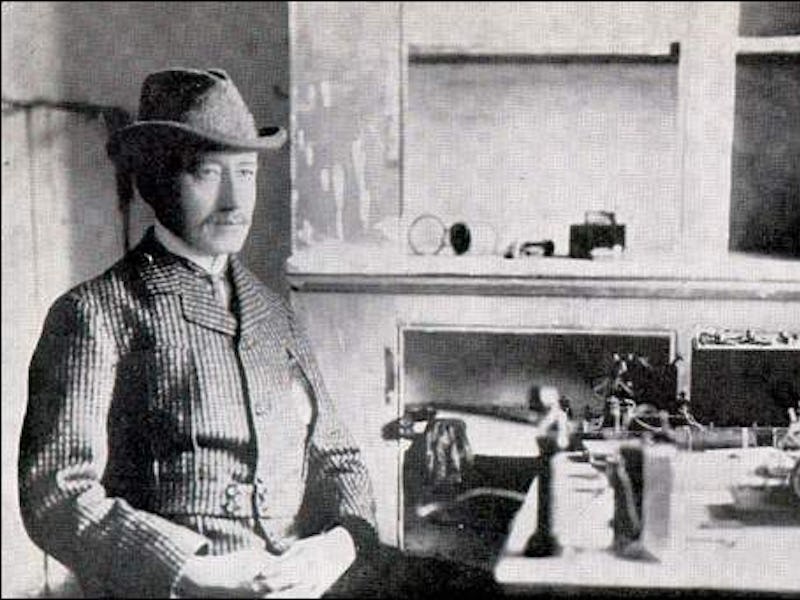Marconi Hoped the Wireless Telegraph Would Make War 'Ridiculous,' Was Adorable
The inventor of the wireless telegraph thought that the "wireless era" would end war. Why didn't it?

“The coming of the wireless era will make war impossible, because it will make war ridiculous.” -Guglielmo Marconi, 1912
In 1912, Technical World Magazine ran a piece on Guglielmo Marconi in which he made a very bold prediction about the future. Marconi, credited with the invention of the wireless telegraph, went out on the narrowest of limbs and described a world where war was impossible because mankind could better communicate with itself and more efficiently parcel out energy and power.
What a sweet boy.
Marconi had big, big dreams for the “wireless era,” and they weren’t limited to the telegraph, though that was certainly his major focus and biggest success. Marconi saw the ability to communicate over long distances (and, theoretically, being able to transfer power and energy via similar methods) as a panacea. Like other egomaniacal inventors (think: Alfred Nobel) who thought that, in solving a technical problem, he’d changed the world for good.
To understand Marconi’s hubris, it’s important to understand that he was, indeed, a revolutionary. His predictions about things like the end of war and freedom from the “many of the burdens imposed by present economic conditions” seem really far-fetched now (and, to be fair, they were a pretty far-reaching in 1912, too), but when something like the wireless telegraph comes along, things do change. The problem is that they rarely change in a predictable or entirely positive way.
What Marconi didn’t account for was that often the ability to communicate facilitates unpleasant communications. Long-range communication enabled us to pick fights, to make secret plans, to leverage, pressure and coerce our way into plenty of conflicts. Being able to “talk it out” didn’t help and Marconi’s dream of being able to transfer power via radio waves was, ultimately, a bust.
When it comes down to it, Marconi was blinded by the optimism of revolution. He saw incredible opportunities and figured that we would take advantage of those opportunities to make ourselves better. He didn’t account for the fact that that’s not really how humans have ever worked. We’ve fought for the entirety of recorded history, and the ability to communicate or even to better distribute resources has never changed that. Sure, this was a large-scale revolution in communication (and distribution, according to Marconi’s theory), but it didn’t have the power to make us all agree.
The biggest problem that the human race faces has nothing to do with infrastructure or communication — but our inability to agree. And in all corners of the world, there are people suffering while others prosper. It would’ve been beautiful if Marconi’s wireless power transfer had worked, but its doubtful that it could’ve saved us from ourselves.
Maybe if Marconi’s dream of transferring power wirelessly had come to pass, we’d have seen a real change in the way we fight over resources. Maybe if the human race wasn’t so hard-wired to turn to fisticuffs as a means of conflict resolution, something like the “wireless era” could’ve brought about the end of war. Maybe in an alternate future.